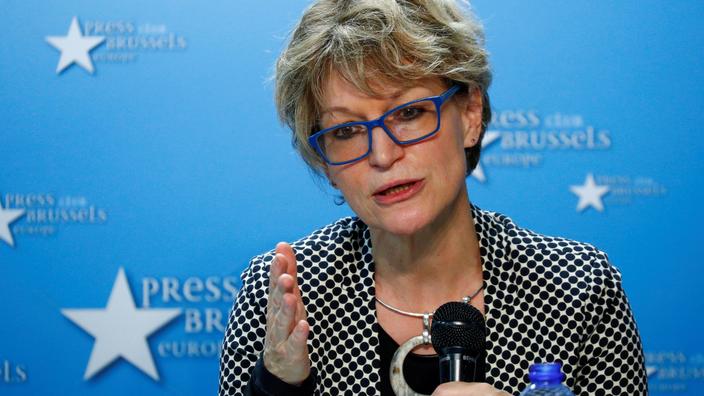Faced with the low hand of rich countries on vaccines against the coronavirus, Amnesty International called on Wednesday (April 7) the international community to correct the situation
“immediately”
, worrying about the consequences of the failure of the world's ability to cooperate.
Read also: Covid-19: with vaccinodromes, France finally agrees to "industrialize" its vaccination
In its 2020/2021 report, the human rights NGO draws up a severe assessment of a year turned upside down by the Covid-19 pandemic: everyone for themselves is generalized penalizing the most vulnerable and aggravating inequalities but also accentuating repression in some countries for health reasons.
"The pandemic has thrown a harsh light on the inability of the world to cooperate effectively and equitably"
, underlined in the preamble the French Agnès Callamard, appointed at the end of March secretary general of the organization.
"The richest countries have established a virtual monopoly on the world's vaccine supply, leaving the countries with the fewest resources to face the worst health and human rights consequences, and therefore the most severe economic and social disruption. longer
, ”she added.
Amnesty therefore calls for
"immediate work to accelerate the production and delivery of vaccines for all"
:
"This is the most fundamental test, however rudimentary, of the world's ability to cooperate"
.
What are they going to do when a bigger pandemic hits us?
(...) What are we going to do when the climate crisis is going to be there right in front of our noses?
"
Agnès Callamard, Secretary General of Amnesty International
More than a year after the appearance of the coronavirus in China at the end of 2019, the world is still struggling with the pandemic, which has killed at least 2.8 million people and officially infected some 130 million people.
Far from having triggered a surge of solidarity, the coronavirus has increased tensions and the gap is widening in terms of vaccination, considered as a way out of the crisis.
Half of the approximately 680 million doses administered worldwide were administered in
“high income” countries
as defined by the World Bank (16% of the world population), while
“low income” countries
(9 % of humanity) only concentrate 0.1% of the doses injected, according to a count made Tuesday by AFP from official data.
Amnesty International supports initiatives such as the Exchange Platform (C-TAP) set up by WHO to share know-how, intellectual property and data.
Still underutilized, it would make it possible in particular to find new production capacities and help build additional production sites, in particular in Africa, Asia and Latin America, according to the UN agency.
"Half measures"
Beyond the vaccine inequality, Amnesty sees as so much other proof of the every man for himself
"the serious irresponsibility"
of China which tried to censor the caregivers and journalists sounding the alarm at the beginning of the pandemic, the US President Donald Trump's decision to withdraw his country from the WHO in the midst of a crisis, since canceled by his successor Joe Biden, or
"half-measures"
such as the partial suspension by the G20 of debt service for the poorest countries .
"The Covid-19 pandemic has highlighted and amplified inequalities, discrimination and repression"
, summarized Agnès Callamard in an interview with AFP.
“Our governments did not pass the 2020 test, our international institutions did not pass the 2020 test. What will they do when a bigger pandemic hits us?
(...) What are we going to do when the climate crisis is going to be there right in front of our noses? "
, she wondered.
"This should be a source of concern for the populations,"
she warned.
Read also: Why should children be vaccinated to do without barrier gestures
Marginalizing even more those who already were, such as women and migrants, the coronavirus has also lent itself to increased repression and human rights violations, Amnesty said.
The organization refers in particular to increased restrictions on freedom of expression in countries such as Saudi Arabia, the United Arab Emirates and Hungary, seeking to silence criticism of the management of the crisis by qualifying them as
"false information "
.
The report also cites an escalation of police violence in Brazil and bloody suppressed #EndSARS protests in Nigeria.
She accuses certain leaders of having attempted to
"normalize the authoritarian emergency measures"
introduced to fight the pandemic, or even of having seen "
an opportunity to establish their own power"
.

